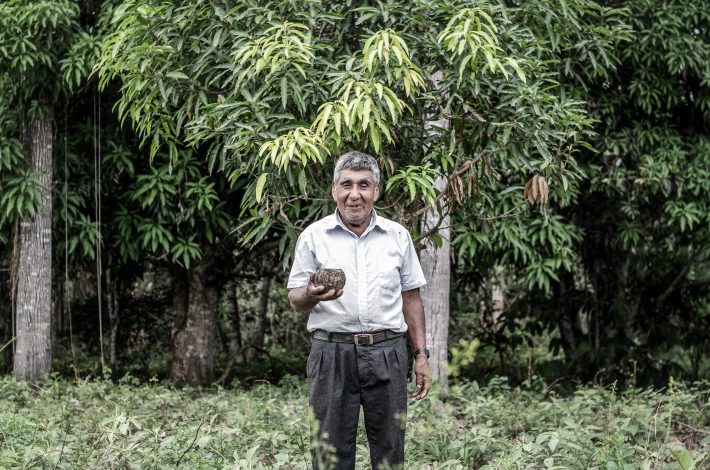Alliance of Bioversity International and CIAT press release.
Tropical fruit trees can improve health, reduce hunger, boost incomes and fight climate change. So why don't we grow and eat more? New research in People and Nature highlights the benefits of increasing tropical fruit consumption.

Two of humanity's biggest problems - the climate crisis and abysmal eating habits - can partly be solved by one healthy solution: eating more food from trees, specifically tropical ones. While global trends in agriculture and diets are not easily reversed, scientists say that creating incentives to grow and eat more mangos, avocados and Brazil nuts - and dozens of tree-sourced foods most people have never heard of - can be both attainable and sustainable.
Writing in People and Nature, researchers outline the myriad nutritional, economic and environmental-health potential of increasing the production and consumption of tropical fruits. They present an overview of benefits from tree-sourced foods in terms of nutrition and discuss the barriers and risks of scaling up supply to a global level.
"Planting the right type of trees in the right place can provide nutritious foods to improve diets sustainably while providing other valuable ecosystem services such as carbon sequestration," said Merel Jansen, the lead author from ETH Zurich and the Center of International Forestry Research. "It also can contribute to development issues related to poverty reduction, biodiversity conservation, and food security."
In spite of the diversity of edible plants - there are more than 7,000 - the global food system is founded on extraordinarily low diversity. Almost half the calories consumed by humans come from only four crops: wheat, rice, sugarcane and maize. The overconsumption of these energy-rich but nutrient-poor foods - in combination with underconsumption of more nutritious foods - has contributed significantly to malnutrition, which afflicts some two billion people. Moreover, their cultivation has caused widespread losses of biodiversity and contributed to climate change.
For these reasons, experts are calling for a transformation of global food systems characterized by the cultivation and consumption of foods that simultaneously deliver nutritional, environmental and health benefits. Because tropical tree species, which may exceed 50,000, have this potential they can be a critical part of the solution, say the authors.
"Leveraging the diversity and local knowledge of tree species in tropical landscapes offers an excellent nature-based solution to match the rising global demand for diversified, healthy and sustainable diets, and to re-valuate native tree species and local farming practices," said Chris Kettle, the principal investigator of this work, from the ETH Zurich and Alliance of Bioversity International and CIAT.

The world's hundreds of millions of smallholder farmers, who have been often pushed aside by the industrialization of food systems, have the potential to be key players in food system transformation. With the right incentives, investments and involvement, smallholder farms could scale up agroforestry systems to produce more, healthy food, while simultaneously diversifying their income sources.
Marginalized groups and women also stand to gain from tree-sourced food sources, especially when the foods are harvested from trees that are not planted but grow spontaneously or and have the potential for natural regeneration that can be managed. This is because, in part, women farmers tend to have limited access to land, credit and other assets.
There are many clear opportunities to incorporate food-producing trees into landscapes. The majority of global cropland does not incorporate trees but has a high potential for doing so. Further, vast tracts of land in the tropics have been cleared for agriculture and then abandoned, and coordinated restoration efforts could include the establishment of sustainably managed agroforestry systems.
Avoiding pitfalls
Increased demand for tree-sourced products has potential downsides. The establishment of industrial cacao plantations in West Africa and oil palm plantations in south-east Asia have deforested landscapes, degraded soils, harmed biodiversity and increased carbon emissions. Avocado farms in Mexico, made profitable by increased demand north of the border, have been recently targeted by organized crime. Dependency on single products can lead to widespread shocks when prices crashed, as has happened to cacao farmers in Côte d'Ivoire.
"A combination of interventions by states, markets and civil society across the supply chain - from producers to consumers - is necessary to guarantee that increases in demand are supplied from sustainable production systems that are diverse, and that will not lead to large-scale deforestation or other unwanted side effects," said Jansen.
To make increased tree-sourced food production an integral part of the global food system transformation, the authors propose the following:
Consumer demand






